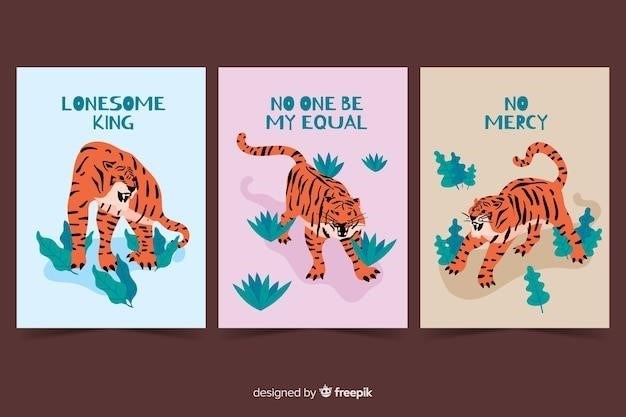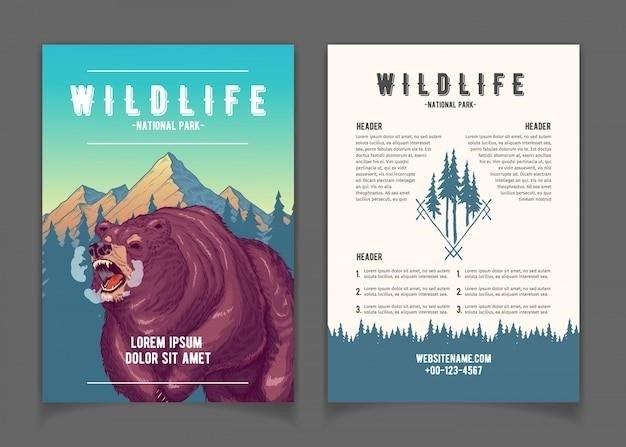Wild at Heart Book PDF⁚ A Comprehensive Guide
This guide explores various aspects of obtaining and understanding John Eldredge’s “Wild at Heart,” including legitimate download sources for the PDF format, exploring differences between original and revised editions, and navigating discussions around the book’s content, application, and controversies.
Where to Find “Wild at Heart” in PDF Format
Locating a legitimate PDF version of “Wild at Heart” requires careful navigation. Direct downloads from the author’s website or reputable online bookstores are ideal, ensuring you support the author and acquire a legally obtained copy. Beware of unofficial sources offering free PDFs; these often lack proper formatting, contain errors, or infringe on copyright laws. Many sites claim to offer free downloads, but these often lead to unreliable links or potentially malicious software. While some online libraries may offer digital access through subscriptions, be sure to check usage rights before downloading. Remember, respecting copyright protects authors and supports continued creation of valuable content;
Legitimate Download Sources for the Book
For authorized digital access to “Wild at Heart,” explore established online retailers like Amazon Kindle, Barnes & Noble Nook, or Christianbook.com. These platforms offer the book in various formats, including potentially a downloadable PDF version or compatible ebook file. Check the publisher’s official website, Thomas Nelson, for links to authorized sellers and digital distribution channels. Many public libraries provide ebook lending services through platforms like Overdrive or Libby, offering access to “Wild at Heart” without purchase. If you prefer a physical copy, purchasing the book from a reputable bookstore or online retailer ensures you’re supporting the author and obtaining a legitimate copy. Always verify the seller’s legitimacy before making a purchase to avoid scams or unauthorized copies.
Exploring Different Editions⁚ Original vs. Revised
John Eldredge’s “Wild at Heart” exists in both an original and a revised edition. Understanding the differences is crucial for selecting the appropriate version. The original edition, published in 2001, established the core themes and arguments. The revised and updated edition, released later, likely incorporates additional insights, updated perspectives, and potentially expanded content based on reader feedback and Eldredge’s further reflections. While the central message remains consistent, the revised edition might offer a refined or more nuanced exploration of the concepts. Consider which edition best suits your needs – perhaps the original offers a more direct experience of the initial work, while the revised version benefits from the author’s later insights and contextualizations. Checking the publication date or edition details on the book’s cover or description will clarify which version you are accessing.

Understanding the Book’s Content
This section delves into the core themes of Eldredge’s “Wild at Heart,” examining its exploration of masculinity, adventure, and the search for purpose within a spiritual context.
Key Themes and Concepts Explored in “Wild at Heart”
John Eldredge’s “Wild at Heart” centers on the inherent longing for adventure and purpose within the male spirit. The book argues that men are often stifled by societal expectations and pressures, leading them to abandon their innate desires for heroism, risk-taking, and a life of meaning. A key concept is the “wild heart,” representing the untamed, adventurous spirit inherent in every man. Eldredge explores how cultural conditioning and unmet emotional needs can wound this wild heart, leading to disillusionment and a sense of being lost or unfulfilled. He proposes that true fulfillment lies in embracing this inherent masculinity and embarking on a journey of self-discovery and spiritual growth. The book explores the significance of a man’s relationship with his father, suggesting that a father’s influence can profoundly shape a son’s understanding of masculinity and his ability to live a fulfilling life. It emphasizes the importance of confronting inner wounds, engaging in meaningful battles, and pursuing a life of adventure and purpose.
The Book’s Target Audience and its Relevance
Primarily aimed at men, “Wild at Heart” resonates with those seeking a deeper understanding of their masculinity and purpose. Eldredge’s work speaks to men feeling unfulfilled or disconnected from their inner selves, those struggling with societal pressures to conform to specific masculine ideals, and those yearning for a more adventurous and meaningful life. The book’s relevance extends beyond a purely religious context; its themes of purpose, adventure, and overcoming internal struggles appeal to a broader audience seeking self-discovery and personal growth. While rooted in a Christian worldview, the book’s exploration of universal masculine experiences transcends denominational boundaries, making it accessible to men of diverse backgrounds and beliefs. The book’s enduring popularity suggests a continuing need for men to grapple with these fundamental questions of identity and purpose in a rapidly changing world. Its exploration of the male psyche continues to provoke thought and discussion, fostering dialogue on masculinity and its complexities.
Criticisms and Controversies Surrounding the Book
Despite its popularity, “Wild at Heart” has faced criticism. Some argue Eldredge’s portrayal of masculinity is overly romanticized and potentially harmful, promoting unrealistic expectations and neglecting the diversity of male experiences. Concerns have been raised about its potentially narrow and exclusionary definition of masculinity, potentially alienating men who don’t fit the presented ideal. The book’s theological underpinnings have also drawn criticism, with some questioning its interpretation of biblical texts and its emphasis on a specific type of Christian masculinity. Others have criticized the book’s potentially simplistic solutions to complex issues, suggesting that it oversimplifies the challenges faced by men in contemporary society. The book’s focus on a particular type of adventure and heroism has been seen as excluding men with different life experiences or preferences. The ongoing discussion surrounding these points highlights the complexities of understanding and defining masculinity in the 21st century.

Practical Applications and Resources
This section explores practical applications of “Wild at Heart,” including study guides, online communities for discussion, and personal growth strategies utilizing the book’s concepts for self-reflection and improvement.
Study Guides and Companion Materials for “Wild at Heart”
Supplementing John Eldredge’s “Wild at Heart” are various study guides and companion materials designed to enhance comprehension and application of its core themes. These resources often take the form of downloadable PDFs, workbooks, or online courses. They typically break down the book chapter by chapter, offering summaries, discussion questions, and practical exercises to aid in personal reflection and group study. Some guides may include journaling prompts, encouraging readers to actively engage with Eldredge’s concepts. The availability of such resources varies, with some offered directly by publishers or authors, while others are created by independent study groups or individuals and shared online. Finding these supplementary materials can significantly deepen one’s understanding of the book and its relevance to personal life. Searching online using keywords like “Wild at Heart study guide PDF,” or checking the publisher’s website, or exploring online book communities, may prove fruitful in locating helpful resources. Remember to assess the credibility and relevance of any supplementary material before use.
Online Forums and Communities Discussing the Book
Engaging with online communities dedicated to discussing “Wild at Heart” offers a valuable avenue for expanding one’s understanding and sharing personal experiences. Numerous online forums and social media groups cater specifically to readers of Eldredge’s work, providing platforms for exchanging thoughts, interpretations, and personal applications of the book’s concepts. These spaces are often vibrant hubs for discussion, allowing individuals to connect with others who have read the book and share their insights, ask questions, and offer support. Participants may delve into specific chapters, explore controversial points, or discuss how the book’s themes resonate with their personal lives. The dynamic nature of these online communities provides opportunities for diverse perspectives and fosters a sense of shared exploration. While engaging with these forums, it’s important to approach discussions with an open mind and respect for differing opinions. Remember to evaluate the reliability of the information exchanged, as not all contributions may be accurate or well-informed. Searching for relevant groups on platforms like Reddit, Facebook, or Goodreads will reveal a range of communities dedicated to discussing “Wild at Heart.”
Utilizing the Book for Personal Growth and Reflection
John Eldredge’s “Wild at Heart” offers a unique framework for personal growth and reflection, particularly for men seeking to understand their masculinity within a spiritual context. The book encourages introspection by prompting readers to examine their deepest desires and confront the wounds that may hinder their pursuit of a fulfilling life. Engaging with the book’s questions and exercises can facilitate a journey of self-discovery, encouraging readers to identify their core values and aspirations. The exploration of themes like adventure, purpose, and the battle for one’s heart provides opportunities for profound self-reflection. Many readers find value in journaling their responses to the book’s thought-provoking questions, fostering a deeper understanding of their own emotional landscape and spiritual journey. The book’s emphasis on reclaiming a sense of purpose and embracing one’s inherent masculinity can serve as a catalyst for positive change, promoting personal growth and inspiring men to live more authentically. Utilizing the book for personal reflection can be a powerful tool for self-improvement and spiritual development.
